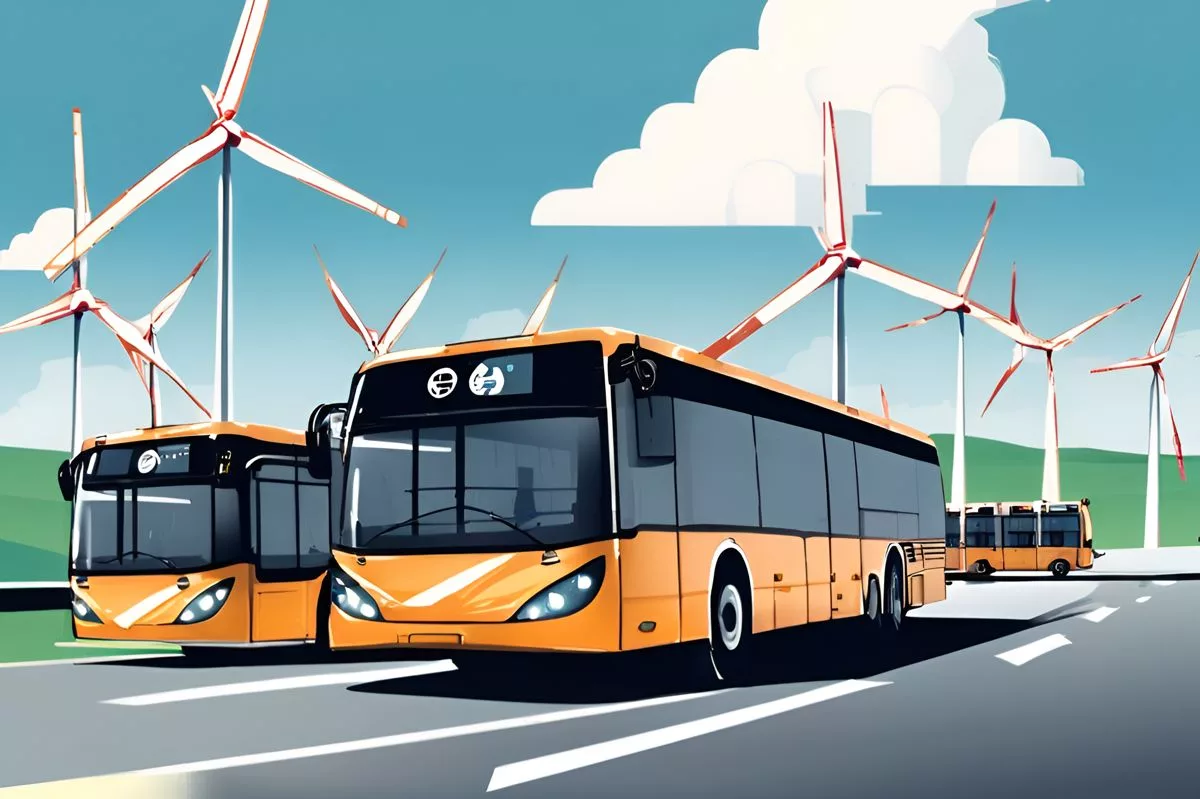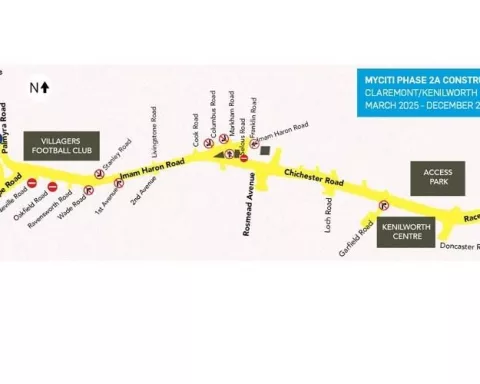Cape Town is investing R8.5 billion to transition their MyCiti bus system to completely electric, with a focus on reducing carbon emissions in the metro southeast regions. This is part of the city’s commitment to sustainable development and environmental protection, along with supporting the Flex EV initiative in electrifying the taxi industry and national government investment allowances for EV production. Cape Town’s visionary approach to eco-friendly transportation is leading the way for cities worldwide and shaping a cleaner, more sustainable future.
What is Cape Town’s plan for sustainable transport?
Cape Town is investing R8.5 billion in the growth of the MyCiti bus system, with plans to make it completely electric. The focus will be on the metro southeast regions, with the intent to reduce carbon emissions by 67 kilotonnes of carbon dioxide annually. The city is also supporting the Flex EV initiative in electrifying the taxi industry, and the national government is offering investment allowances for EV production. This demonstrates Cape Town’s commitment to sustainable development and environmental protection.
Cape Town’s Green Aspirations
At the epicentre of South Africa, Cape Town is preparing to make a significant stride into the next generation of sustainable transport. The expansive city has declared its plans to kick-start the Western Cape’s most formidable electric vehicle initiative. A whopping R8.5 billion is earmarked for the growth of the MyCiti bus system, paving the way for a groundbreaking journey towards eco-friendly public transport.
Cape Town’s Mayor, Geordin Hill-Lewis, made the inspiring announcement during Africa’s Green Economy Summit. The summit, which took place from 21 to 23 February, was an apt setting for such a remarkable proclamation. Nestled in the Century City Conference Centre, the declaration resonated with the exciting prospect of a progressive future.
Target Areas and Expected Impact
The metro southeast regions, encompassing the vibrant neighbourhoods of Khayelitis and Mitchells Plain, are the focus of this colossal transition. In Hill-Lewis’ own words, “It will be completely electric. All of the buses on that route will be e-buses and that’s an important shift for the city”. This change represents not only an embrace of modernity but also an expression of environmental stewardship.
The detailed scheme is a crucial component of the City’s Just Energy Transition Implementation Plan 2023 – 2027. A collection of ground-breaking projects, it further encompasses the Golden Arrow Bus Service (GABS) electric bus initiatives and the Flex EV electric taxi scheme.
GABS, with its impressive fleet of 1,100 buses, stands on the edge of a dramatic makeover. The intent to replace all current buses with electric versions signals a crucial change in the city’s approach to public transit. This modification is expected to reduce carbon emissions by 67 kilotonnes of carbon dioxide annually, a substantial decrease that promises a greener future for Cape Town’s residents.
Companion Projects and National Support
In support of this, the Flex EV initiative, a start-up company focused on the electrification of the taxi industry, is set to make a significant contribution. With strategies to launch two pilot projects in Stellenbosch and Century City, the firm plans to implement 80 e-MBTs and two charging facilities within a span of just two years.
This ambitious endeavour was made public in the same week as the National Government announced new investment allowances for EV production in South Africa. This generous scheme will allow producers to claim 150% of qualifying investment spending on electric and hydrogen-powered vehicles in the initial year.
Cape Town’s Visionary Path
Cape Town is making substantial progress towards environmental sustainability. As it embraces the future of transportation, it is leading by example for cities worldwide. The surge of electric vehicles is just beyond the horizon, and Cape Town is ready to ride this wave towards a cleaner, more sustainable future.
The city’s commitment to eco-friendly transportation and emphasis on reducing carbon emissions sends a clear message to the world – Cape Town is not just thinking about the future; it is actively shaping it. Its ambitious electric vehicle projects demonstrate its commitment to sustainable development and environmental protection. As Cape Town takes this exciting leap into the future, it invites the world to join it on this revolutionary journey towards sustainable transport.
1. What is Cape Town’s plan for sustainable transport?
Cape Town is investing R8.5 billion in the growth of the MyCiti bus system, with plans to make it completely electric. The focus will be on the metro southeast regions, with the intent to reduce carbon emissions by 67 kilotonnes of carbon dioxide annually. The city is also supporting the Flex EV initiative in electrifying the taxi industry, and the national government is offering investment allowances for EV production. This demonstrates Cape Town’s commitment to sustainable development and environmental protection.
2. Which regions are the focus of Cape Town’s sustainable transport plan?
The focus will be on the metro southeast regions, encompassing the vibrant neighbourhoods of Khayelitsha and Mitchells Plain.
3. What is the expected impact of the sustainable transport plan on carbon emissions?
The MyCiti bus system’s transition to electric buses and the replacement of GABS buses with electric versions is expected to reduce carbon emissions by 67 kilotonnes of carbon dioxide annually.
4. What is the Flex EV initiative?
The Flex EV initiative is a start-up company focused on the electrification of the taxi industry. The company plans to launch two pilot projects in Stellenbosch and Century City, implementing 80 e-MBTs and two charging facilities within two years.
5. What is the national government offering in terms of investment allowances for EV production?
The national government is offering investment allowances for EV production, allowing producers to claim 150% of qualifying investment spending on electric and hydrogen-powered vehicles in the initial year.
6. How is Cape Town’s commitment to sustainable transport shaping a cleaner, more sustainable future?
Cape Town’s ambitious electric vehicle projects and commitment to eco-friendly transportation demonstrate its commitment to sustainable development and environmental protection. The city is leading by example for cities worldwide, inviting the world to join it on this revolutionary journey towards sustainable transport.












